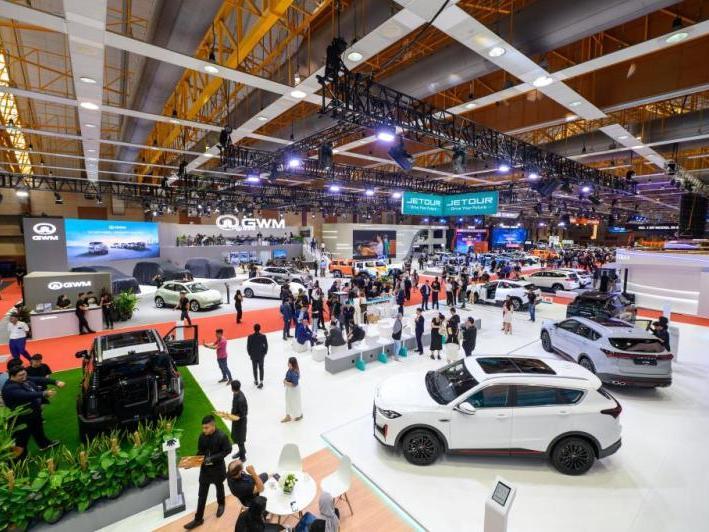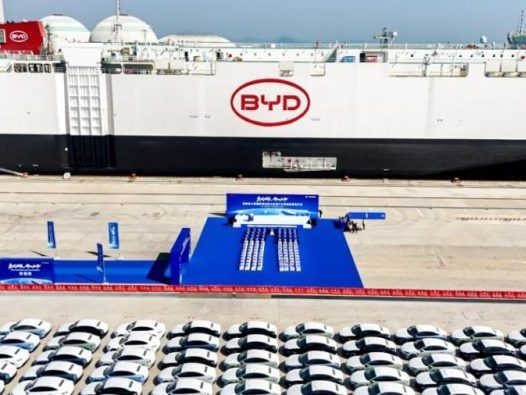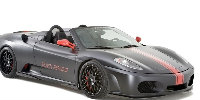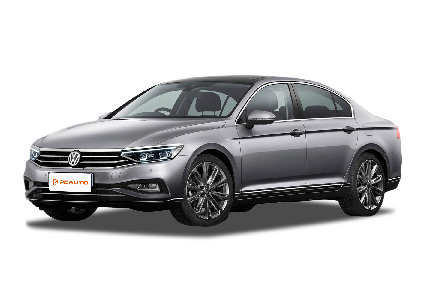Q
What is the top speed of the 2018 Passat?
The top speed of the 2018 Volkswagen Passat varies by model and engine configuration. For example, the 1.8-liter TSI turbocharged version commonly available in the Malaysian market has an electronically limited top speed of approximately 210 km/h. In contrast, the high-performance variant equipped with the 2.0-liter TSI engine can reach around 240 km/h. Additional variables that can influence the achievable top speed include tire specifications, road conditions, and vehicle load. For consumers in Malaysia, the Passat is a midsize sedan that emphasizes comfort and practicality. Its power performance is sufficient for daily driving and highway cruising. While outright speed is not its primary focus, the car's stable chassis tuning and robust driving dynamics make it an excellent companion for long-distance travel. It is crucial to note that the statutory maximum speed limit on Malaysian highways is 110 km/h. Drivers are advised to always obey traffic regulations to ensure safety. Furthermore, adhering to the regular maintenance schedule is key to maintaining the vehicle's optimal performance, with particular attention paid to timely oil and coolant changes for the turbocharged engine.
Special Disclaimer: This content is published by users and does not represent the views or position of PCauto.
Related Q&A
Q
How much is a 2018 Passat worth trade-in?
The 2018 Volkswagen Passat typically holds a used car trade - in value between RM70,000 and RM120,000 in Malaysia. The exact figure hinges on factors like overall condition, mileage, trim level, and service history, higher - spec models such as the R - Line variant or those with lower mileage usually fetch higher prices. In Malaysia's used car market, demand for German mid - size sedans like the Passat remains steady, thanks to their solid reputation among local buyers for reliability and comfort. If you're looking to trade yours in, I'd recommend getting free valuations from official dealerships or reputable used car platforms first. And don't forget to keep those service records complete – they can really help boost your car's residual value. One thing to note: used car prices here are also influenced by new car promotions. If the Passat has been getting big discounts recently, it might temporarily drag down the second - hand market. From a mechanical perspective, the Passat's 1.8TSI and 2.0TSI engines hold up well in our tropical climate, but regular coolant and transmission fluid changes are essential. These little maintenance details directly affect what your car is worth in the end. For the most accurate trade - in quote, your best bet is to take the car to several certified used car dealers for on - site inspections and compare their offers.
Q
When to change the timing belt on a Passat?
Volkswagen Passat owners in Malaysia need to pay special attention to the timing belt replacement interval, especially considering how our hot and humid climate accelerates rubber component aging. According to the manufacturer's recommendations, Passat models equipped with 1.8T or 2.0T petrol engines should have the timing belt replaced once they hit 90,000 to 105,000 kilometers or after 5 to 6 years, whichever comes first. For diesel variants, due to higher operating loads, it's advisable to inspect the belt as early as 80,000 kilometers.
In practice, always replace the tensioner pulley and water pump simultaneously—water pump failures can cause coolant leaks that corrode the belt. Malaysia's damp conditions speed up belt cracking, so if you hear unusual squeaking from the engine bay or notice increased rough idling on cold starts, get it checked immediately.
It's worth noting that some newer Passat models have switched to maintenance-free timing chains, but most pre-2015 models still use belts. Owners can check their specific configuration by providing the VIN to an authorized service center. During regular servicing, have the belt inspected for cracks or missing teeth. If the vehicle sits unused for long periods, pay extra attention to belt elasticity—rubber components actually harden faster when stationary. For those who frequently drive in congested areas like Kuala Lumpur, the constant stop-start driving puts extra strain on the belt, so consider slightly shortening the replacement interval.
Q
What kind of engine is in the 2018 Passat?
For the Malaysian market, the 2018 Volkswagen Passat primarily offers two petrol engine options: the 1.8-litre TSI turbocharged engine and the 2.0-litre TSI turbocharged engine. The 1.8L TSI churns out a healthy 180 horsepower and 250 Nm of torque, while the 2.0L TSI ups the ante with a more robust 220 horsepower and 350 Nm. Both engines are paired with Volkswagen's DSG dual-clutch gearbox, delivering that smooth yet efficient driving feel we've come to expect.
For Malaysian buyers, turbocharged tech makes a lot of sense here – it handles our hot climate and varied road conditions pretty well, balancing decent power delivery with better fuel economy. It's worth noting that these TSI engines use direct fuel injection, which precisely controls fuel delivery to boost combustion efficiency. You'll find similar tech in rival Japanese or European models, of course, but each brand tunes things differently. Volkswagen tends to prioritize low-end torque, which is really handy for daily city driving.
If you're looking at used models or parallel imports, you might come across diesel TDI engines, though they're pretty rare finds in the Malaysian market.
Q
Which year is Passat best?
The Volkswagen Passat has always performed well in the Malaysian market, especially the B8 generation models introduced from 2015 to 2017, which have built up quite a solid reputation. This generation of Passat moved to the MQB platform, making the body lighter while improving handling. It also came packed with advanced driver assistance systems like adaptive cruise control and lane keeping – features that really suit Malaysia's long-distance driving needs. What's more, the 1.8TSI and 2.0TSI engines struck a nice balance between power and fuel efficiency, while the diesel TDI variant offered even more torque, perfect for those who frequently hit the highway. Inside, the B8 generation got a significant upgrade too, with a digital instrument cluster and a larger infotainment screen as standard, giving it a really tech-forward feel. Of course, the facelifted models from 2019 onwards further refined the front-end design and infotainment system, but they do come with a heftier price tag. If you're working with a tighter budget, the 2015-2017 used B8 models offer much better value for money. One thing to keep in mind though – Malaysia's hot and rainy climate can be tough on European car electronics. It's advisable to prioritize units with complete service records and to regularly check the electrical systems and cooling components.
Q
What is the fuel consumption of the 2018 Passat?
The 2018 Volkswagen Passat's fuel economy in the Malaysian market varies depending on the engine under the hood. The 1.8-liter TSI turbocharged petrol engine returns a combined fuel consumption figure of around 6.6 liters per 100 kilometers, while the more powerful 2.0-liter TSI variant edges up slightly to approximately 7.2 liters per 100 km. Of course, real-world numbers can fluctuate based on your driving style, the roads you tackle, and how well you keep up with maintenance.
Diesel fans, listen up – the 2.0-liter TDI diesel engine is the efficiency star here, with a combined fuel consumption as low as 4.8 liters per 100 km, making it a solid choice for those long highway cruises. It's worth highlighting that the Passat's direct fuel injection and DSG dual-clutch transmission work together to maximize fuel efficiency – tech that's pretty much standard fare in mid-to-premium sedans these days.
Malaysian drivers should also factor in local fuel quality and our climate when considering economy. Sticking to regular air filter replacements and using the recommended engine oil will go a long way in keeping those fuel consumption figures in check. If you're really chasing the ultimate in fuel sipping, keep an eye out for Volkswagen's plug-in hybrid Passat GTE, which offers extended all-electric driving with zero fuel consumption.
Q
How much is insurance for a 2018 Volkswagen Passat?
Insurance costs for the 2018 Volkswagen Passat in Malaysia can vary quite a bit depending on several factors, but you're generally looking at a range of around RM2,000 to RM5,000. The exact figure hinges on things like the car's market value, engine size—so whether it's the 1.8TSI or 2.0TSI—your age, driving history, and the type of coverage you go for, be it comprehensive or third-party only. On top of that, quotes can differ between insurers like Etiqa, Allianz, or Tune Protect, so your best bet is to check directly on their websites or use a comparison platform to get a precise number.
It's worth noting that car insurance in Malaysia typically comes with basic coverage: third-party liability, fire, and theft. But if you want extras like windscreen protection or natural disaster coverage, that'll bump up the premium. Being a German mid-size sedan, the Passat's higher parts costs can also play into insurance pricing. To keep costs down, consider increasing your voluntary excess (NCD) and regularly shop around for insurer promotions—like no-claim discounts or bundle deals. These little steps can help save on your long-term motoring expenses.
Q
Is a 2018 Volkswagen Passat a good car?
The 2018 Volkswagen Passat is a solid performer in Malaysia's midsize sedan segment, winning over families and business users alike with its comfortable ride, well-sorted chassis, and practical cabin layout. Under the hood, the 1.8-liter TSI turbo engine delivers plenty of pep while keeping fuel consumption in check – perfect for both Malaysian city commutes and longer highway stretches. Inside, it's classic Volkswagen simplicity, with materials and build quality that sit comfortably above average for the class. The infotainment and driver-assist features? They get the job done without fuss. Now, remember, like any used car, always dig into the service history and mechanical condition before buying. Pay extra attention to the gearbox and electronics to make sure everything's running smoothly. On the plus side, VW's after-sales network in Malaysia is pretty extensive, and parts availability is generally good – that's a big bonus for long-term ownership. If you're considering one, do yourself a favor and take it for a test drive to get a feel for how it actually drives. And hey, it wouldn't hurt to cross-shop with rivals like the Toyota Camry or Honda Accord to make sure you're getting the best fit for your needs.
Q
How reliable is the 2018 Passat?
The 2018 Volkswagen Passat has proven to be a generally reliable choice in the Malaysian market. Its tried-and-tested TSI turbocharged engine and DSG dual-clutch gearbox deliver smooth power and decent fuel efficiency, making it well-suited for both daily city commutes and longer highway drives here. Inside, there's plenty of space, and the suspension is tuned for comfort, handling Malaysia's varied road conditions capably.
You might encounter some minor niggles, though – things like occasional glitches with the electronics or a creaky sunroof. But staying on top of regular servicing and software updates usually keeps those issues in check. It's worth noting that maintenance costs for the Passat tend to be a bit higher than your average Japanese competitors in the same class. I'd recommend sticking with authorized VW service centers to ensure you're getting quality parts.
If you're looking at a used Passat, pay extra attention to how smoothly the gearbox shifts and check for any wear on the chassis rubber components. A complete service history is also a must-have when you're doing your due diligence.
Against its peers, the Passat still holds an edge when it comes to cabin quietness and high-speed stability. If your budget stretches that far, springing for a variant with the driver assistance package is a smart move – features like automatic emergency braking and adaptive cruise control really come in handy in Malaysia's often chaotic traffic.
Q
What is the price of VW Passat 2018?
If you're looking at a used 2018 Volkswagen Passat in Malaysia, prices typically range from around RM80,000 to RM120,000. It really depends on the condition, mileage, and trim level, though. The base 1.8 TSI models are usually on the lower end of that spectrum, while the top - spec 2.0 TSI or those with the R - Line package will fetch a higher price. This German midsizer is known for its solid chassis setup and efficient turbocharged engines. The 2018 model came equipped with an 8 - inch touchscreen and tri - zone climate control as standard, and some higher - spec versions even got adaptive cruise control and a digital instrument cluster. A piece of advice when buying a used car: always go through official certified channels or have a professional inspection conducted to check the vehicle's history. It's especially important to check the maintenance records of the DSG gearbox. Also, Malaysia's hot and humid weather can speed up the aging of rubber components, so a thorough inspection of the chassis bushings and weatherstripping is also crucial. If you're considering Japanese alternatives in the same class, it's worth checking out the used market for the Toyota Camry or Honda Accord. Different brands have their own pros and cons when it comes to maintenance costs and parts availability.
Q
What generation is the 2018 Passat?
The 2018 Volkswagen Passat falls under the eighth-generation model, codenamed B8. This generation first hit the scene back in 2014, got a minor refresh in 2016, and the 2018 version carried forward the B8's design and tech package. Styling-wise, it sports VW's signature horizontal chrome grille and sharper LED headlights. Inside, you'll find a digital instrument cluster and advanced driver assistance systems, giving the cabin an overall vibe that's equal parts business and tech-forward.
For the Malaysian market, the 2018 Passat typically came with engine choices like the 1.8 TSI or 2.0 TSI petrol units, with some variants likely packing the DSG dual-clutch gearbox – a combo that balances pep and fuel efficiency pretty well. Safety got a solid upgrade with the eighth-gen Passat too, featuring stuff like adaptive cruise control, lane keeping assist, and automatic emergency braking, all meeting major global safety standards.
It's worth noting that the Passat B8 is built on VW's MQB platform, which also underpins models like the Skoda Superb. This shared platform allows for tech resource sharing while still letting each brand keep its own distinct character. For Malaysian buyers, the Passat B8 stands out as a midsize sedan that nails both comfort and practicality, making it a solid pick whether you're using it for family duties or business trips.
Latest Q&A
Q
What is the warranty on Swift 2024 engine?
The 2024 Swift's engine warranty is typically 5 years or 150,000 kilometers, whichever comes first. This is Suzuki Malaysia's official standard warranty policy, though specific terms might vary slightly with dealer promotions, so it's best to check with authorized dealers for the latest details before buying. It's important to note that the warranty usually covers manufacturing defects in the engine, but damage caused by improper maintenance as per the manual, use of non-genuine parts, or human error isn't included. Malaysia has a tropical climate, with high temperatures and humidity placing higher demands on engine durability. Owners are advised to strictly follow the maintenance schedule for oil and coolant changes, and regularly inspect the condition of belts and hoses. Additionally, Suzuki's warranty policy generally includes 24-hour roadside assistance, which is especially useful for long-distance drivers in Peninsular Malaysia and East Malaysia. While understanding the warranty details, owners should also keep complete maintenance records, as this can effectively boost the vehicle's residual value during future used car transactions.
Q
Is Swift 2024 worth buying?
The 2024 Suzuki Swift is a compact hatchback worth considering in the Malaysian market, especially for city commuters and budget-conscious buyers. It carries forward the Swift lineup's reputation for affordability and practicality, powered by a 1.2L naturally aspirated engine that delivers impressive fuel efficiency – official figures peg the combined consumption at around 4.5L/100km, which is pretty wallet-friendly given Malaysia's fuel prices. The interior is straightforward but well-equipped, with a standard 7-inch touchscreen supporting Apple CarPlay and Android Auto, hitting the mark for younger users. On the safety front, it comes with 6 airbags, ESP, and hill-start assist as standard, keeping pace with mainstream offerings in its class. That said, rear legroom is a bit tight, making it better suited for small families or singles. Compared to the Perodua Myvi, the Swift edges ahead in handling agility and brand reputation, though the Myvi might be the go-to for those on an extremely tight budget thanks to its easier maintenance and cheaper parts. If you're after driving fun and fuel economy, the 2024 Swift is a solid pick – but do yourself a favor: head to a dealership for a test drive to check if the space works for you, and shop around different dealers too. The Malaysian market often has promotions like free servicing or low-interest loans up for grabs.
Q
What is the maintenance cost of Swift 2024?
The 2024 Suzuki Swift has relatively affordable maintenance costs in Malaysia. A regular service (like oil and filter changes) runs around RM200 to RM300 per visit, depending on the oil type used (mineral, semi-synthetic, or fully synthetic) and the authorized service center's pricing. Servicing is required every 10,000 km or 6 months, whichever comes first. For major services (involving brake fluid, transmission oil replacement, etc.), costs can go up to RM500 to RM800. As an economical hatchback, the Swift benefits from ample parts supply and reasonable pricing, making long-term ownership costs low—ideal for budget-conscious buyers. Additionally, it's advisable for owners to stick to the factory maintenance schedule; not only does this extend the vehicle's lifespan, but it also preserves warranty coverage. Malaysia's hot and rainy climate means regular checks on the air-conditioning system and undercarriage rust protection are important too. These extra items might incur small additional costs, but they effectively prevent expensive repair bills down the line. Overall, the 2024 Swift is easy on the maintenance side, making it a great value-for-money choice for city commuting.
Q
Does the Swift 2024 have good resale value?
Based on the general performance of Malaysia's auto market, the 2024 Suzuki Swift is expected to hold its resale value well. This largely comes down to Suzuki's solid reputation locally, the Swift lineup's long-standing reliability, and strong market demand. The car is known for being fuel-efficient, nimble to drive, and having relatively affordable maintenance costs—all factors that positively impact its second-hand value. In Malaysia, small cars like the Swift are usually popular with urban commuters, so they tend to move quickly in the used car market, which helps keep prices stable. What's more, if the 2024 Swift maintains the durability and low fault rate of previous models, its resale value could outperform some rivals in the same class. To further boost its second-hand worth, it's a good idea to stick to regular servicing at authorized centers, keep complete records, and avoid heavy modifications—all of which directly affect the price assessment when it comes time to sell. When shopping for such high-resale-value models, Malaysian consumers can also check out annual residual value reports from local used car platforms or industry associations for more specific market data.
Q
What is the fuel consumption of Swift 2024?
The 2024 Suzuki Swift delivers impressive fuel economy in Malaysia. Powered by a 1.2-liter naturally aspirated engine paired with a lightweight body design, official figures put its combined fuel consumption at around 4.5 liters per 100 kilometers (actual numbers may vary slightly depending on driving habits and road conditions). It's perfect for city commutes or long drives, helping you keep fuel costs in check. The Swift has always been known for being economical and practical, and the 2024 model takes it up a notch with optimized engine combustion efficiency. There might even be a hybrid version available depending on market specifications, boosting its eco-friendly credentials further. When picking a car in Malaysia, besides fuel consumption, factors like regular maintenance costs and insurance premiums matter too. The Swift scores here with readily available parts and easy servicing, making it a great long-term value proposition. If you're after even better mileage, stick to smooth driving habits and keep up with regular maintenance—like changing the air filter and engine oil on time. Those little things can really help improve fuel efficiency.
View MoreRelated News

Because of lack of funds to upgrade the factory, Volkswagen postponed the release of ID.Golf and ID.Roc
JamesSep 17, 2025

Volkswagen Locks Vehicle Horsepower, Unlocks Full Power via Subscription
JohnAug 19, 2025

Summarizing the 2025 Malaysia Auto Show, a large number of new cars were launched in Malaysia this year.
MichaelMay 12, 2025

Volkswagen ID.Buzz's Bizarre Recall: Third-Row Seats Too Wide, Need to Be Modified
Kevin WongMay 8, 2025

BYD Sets Global Sales Target of 5.5 Million Units for 2025
RobertMar 26, 2025
View More


















Pros
Cons